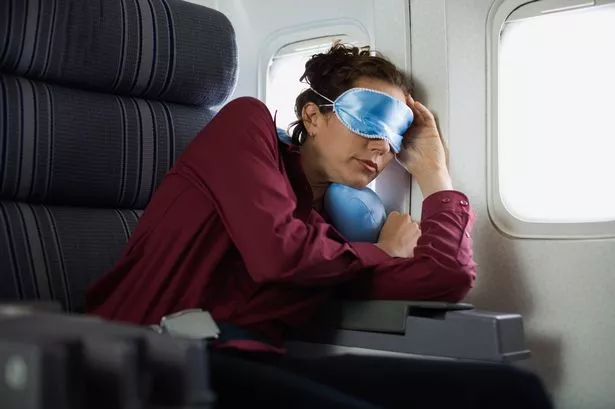
News
August 30, 2025
All the medications you can't take abroad including co-codamol and sleeping pills
It's not just ADHD medication that's affected with people who smoke and vape also warned
**Beware Your Baggage: Common Medications Could Land You in Trouble Abroad**
Planning a holiday? Don't forget to pack your sunscreen and swimsuit, but more importantly, double-check your medication. Seemingly harmless over-the-counter and prescription drugs, including common painkillers like co-codamol and sleeping pills, could land you in legal hot water depending on your destination.
While recent attention has focused on the restrictions surrounding ADHD medications in certain countries, the issue extends far beyond that. A growing list of substances, readily available in UK pharmacies, are controlled or banned in other parts of the world. Failing to research and adhere to local regulations can result in hefty fines, confiscation of medication, or even imprisonment.
Co-codamol, a popular pain reliever containing codeine, is a prime example. While widely used in the UK, codeine is a controlled substance in many nations. Similarly, various sleeping pills, including those available over-the-counter, may be subject to strict regulations abroad, particularly those containing benzodiazepines.
The advice extends to those who smoke or vape. Restrictions on tobacco products and e-cigarettes are becoming increasingly common, and some countries have outright bans on vaping. Travelers should thoroughly research the laws regarding these items in their destination country to avoid potential penalties.
Experts advise consulting with your GP or pharmacist well in advance of your trip. They can provide information on the specific ingredients in your medications and advise on whether they are permitted in your destination country. A letter from your doctor detailing your medical condition and the necessity of the medication can also be helpful, especially if translated into the local language.
It is also crucial to check the specific regulations of the country you are visiting through their embassy or consulate. Websites like the Foreign, Commonwealth & Development Office offer guidance, but it is ultimately the traveler's responsibility to ensure they comply with local laws.
Don't let a simple oversight ruin your holiday. Taking the time to research and prepare your medication properly can save you considerable stress and potential legal trouble, allowing you to enjoy your trip with peace of mind. Remember, ignorance of the law is no excuse, especially when it comes to controlled substances.
Planning a holiday? Don't forget to pack your sunscreen and swimsuit, but more importantly, double-check your medication. Seemingly harmless over-the-counter and prescription drugs, including common painkillers like co-codamol and sleeping pills, could land you in legal hot water depending on your destination.
While recent attention has focused on the restrictions surrounding ADHD medications in certain countries, the issue extends far beyond that. A growing list of substances, readily available in UK pharmacies, are controlled or banned in other parts of the world. Failing to research and adhere to local regulations can result in hefty fines, confiscation of medication, or even imprisonment.
Co-codamol, a popular pain reliever containing codeine, is a prime example. While widely used in the UK, codeine is a controlled substance in many nations. Similarly, various sleeping pills, including those available over-the-counter, may be subject to strict regulations abroad, particularly those containing benzodiazepines.
The advice extends to those who smoke or vape. Restrictions on tobacco products and e-cigarettes are becoming increasingly common, and some countries have outright bans on vaping. Travelers should thoroughly research the laws regarding these items in their destination country to avoid potential penalties.
Experts advise consulting with your GP or pharmacist well in advance of your trip. They can provide information on the specific ingredients in your medications and advise on whether they are permitted in your destination country. A letter from your doctor detailing your medical condition and the necessity of the medication can also be helpful, especially if translated into the local language.
It is also crucial to check the specific regulations of the country you are visiting through their embassy or consulate. Websites like the Foreign, Commonwealth & Development Office offer guidance, but it is ultimately the traveler's responsibility to ensure they comply with local laws.
Don't let a simple oversight ruin your holiday. Taking the time to research and prepare your medication properly can save you considerable stress and potential legal trouble, allowing you to enjoy your trip with peace of mind. Remember, ignorance of the law is no excuse, especially when it comes to controlled substances.
Category:
Politics